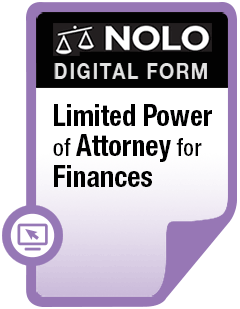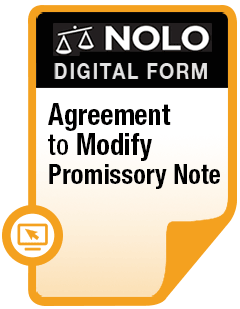Buying mortgage points will reduce your loan’s interest rate and monthly payment. But are they worth it?
When you take out a mortgage to buy a home, you'll have to agree to pay interest at an annual rate on the loan. As part of the transaction, you can pay "discount points" (or "points") to the lender to lower the interest rate. The idea behind mortgage points is that you pay a one-time and usually optional fee to reduce the rate. That way, you pay less in the long run. But you'll need to come up with cash for the points at closing.
Paying for points might—or might not—be a good idea, depending on your situation. Whether you should pay discount points depends on a few factors, like whether you're getting a fixed or adjustable-rate mortgage, your down payment, and how long you plan to live in the home or keep the loan. If you have cash available and plan to stay in the property for a long time, it usually makes more financial sense to pay for discount points than if you're planning on living there for only a relatively short time.
Summary of When You Might Want to Pay Mortgage Points
In a nutshell, buying points on a mortgage might be worthwhile if one or more of the following applies to your situation:
- You want to pay less interest over the loan's entire term.
- You plan to keep your home (and not refinance) for long enough to at least break even, preferably longer. Then, you'll recoup the cost of buying points and start saving money.
- You want to lower your monthly interest cost to make the payments more affordable.
- You have cash available to pay for the points.
- You itemize and want to get a tax deduction.
- Your credit isn't good enough to qualify you for the lowest rate available.
What Are Mortgage Discount Points?
Again, with mortgage discount points, you make an upfront payment at closing, and in exchange, the lender reduces your loan's interest rate. The more discount points you buy, the lower your interest rate will be. Another way to understand discount points is to look at them as prepaid interest.
What Are "Negative" Discount Points?
"Negative" discount points, also known as "rebates" or "yield spread premiums," reduce the amount of cash you need at closing. But you'll have to pay a higher interest rate over the life of your loan.
What Are Origination Points?
A different type of mortgage point that you might have to pay is an "origination point." Origination points won't reduce your interest rate; they're fees you pay to the lender for agreeing to provide and process your loan. Sometimes origination points are called an "origination fee." These points vary from lender to lender and are sometimes negotiable, but not usually.
This article focuses mainly on discount points.
How Much Do Mortgage Discount Points Cost?
Typically, one point is equal to 1% of the loan's principal, and it usually buys the rate down by 0.25%. So, you might have to pay four points to reduce your rate by a full percent.
Example. Say you buy one point on a mortgage loan of $300,000, which costs $3,000 (1% of the loan amount). The initial interest rate was 3%. Because each point lowers the interest rate by 0.25%, buying one point lowers your mortgage interest rate from 3% to 2.75%.
But one point might reduce the rate by more or less than 0.25%, depending on the loan and lender.
Are Mortgage Points Worth It?
Buying discount points decreases your monthly payments but increases the upfront cost of your mortgage loan. Figuring out your break-even point is one factor to consider when determining whether mortgage loan points are worth it. But you probably should consider some other issues as well before buying points on a mortgage.
A Lower Interest Rate Can Save You Money Over the Long Term
With a fixed-rate mortgage, the amount you'll pay in total for principal and interest remains the same over the entire mortgage term because the interest rate stays the same. So, buying down the rate can save you money if you plan to stay in the property long-term. A small difference in the interest rate can add up to big savings over the 30 or so years you'll be paying off your mortgage.
Example. If you took out a 30-year, $300,000, fixed-rate loan at 3%, you'd have monthly payments of about $1,265 and pay a total of $455,332 by the time you've paid off the loan. But if your interest rate is 2.75%, your monthly payments would be approximately $1,225, and you'd pay a total of $440,900.
With an adjustable-rate mortgage, though, paying points on a mortgage often reduces the interest rate only until the end of the initial fixed-rate period; the reduction probably won't apply over the life (term) of the loan. Some lenders might also allow you to apply points to reduce the margin (the amount added to the rate index that determines your adjusted rate). So, you could potentially lower the interest rate for longer than just the introductory period.
When Will You Break Even After Buying Mortgage Points?
To determine if it's a good idea to pay for points, compare your cost in points with the amount you'll save with a lower interest rate and see how long it will take you to make your money back. If you can afford to pay for points, then the decision more or less boils down to whether you will keep the mortgage past the time when you break even. After you break even, you'll start to save money. The break-even point varies, depending on your loan size, interest rate, and term.
Example. As in the example above, let's say you get a 30-year loan of $300,000 with a 3% fixed interest rate. Your monthly payment will be $1,265. However, if you buy one point by paying $3,000, and your rate goes down to 2.75%, the monthly payment becomes $1,225. So, divide the cost of the point by the difference between the monthly payments. So, $3,000 divided by $40 is 75, which means the break-even point is about 75 months—meaning you'd have to stay in the home for 75 months (around 6.25 years) to make it worth buying the point.
As you can see, the longer you live in the property and make payments on the mortgage, the better off you'll be paying for points upfront to get a lower interest rate. But if you think you'll want to sell or refinance your home within a couple of years (before you break even), you'll probably want to get a loan with few or no points. Check the numbers carefully before you pay points on a loan because you might not recoup the cost if you move or refinance within a few years.
With an adjustable-rate mortgage, you generally need to make sure your break-even point happens before the fixed-rate period expires. Otherwise, it's usually not worth paying for discount points.
Upsides and Downsides to Paying Discount Points
Again, by lowering your interest rate, your monthly mortgage payments also go down. So, you'll have extra money available each month to spend on other things. Also, if you pay for discount points and itemize your taxes, you can deduct the amount at tax time (see below).
But the money you pay for points, like the $3,000 paid in the above example, might be better used or invested somewhere else. So, be sure to consider whether your expected savings will exceed what you might get by investing elsewhere.
Instead of buying points, some borrowers choose to make a larger down payment to lower the monthly payment amount. In some cases, making a down payment large enough so that you can avoid paying for private mortgage insurance (PMI) might be money better spent than using your money on points. (Most of the time, if you have a down payment of 20% or more, you don't have to pay PMI, which in turn lowers the monthly payment amount.)
Also, a larger down payment helps you build equity faster. However, buying mortgage rate points—both discount points and origination points—won't increase your equity in the home. Or, you could choose to make extra payments on your mortgage to build equity in your home quicker and pay off the mortgage early.
How a Good Credit Score Can Lower Your Interest Rate
Buying mortgage loan points isn't the only way to get a low interest rate. Your credit will have a direct impact on the rate you'll get. In theory, the higher your credit scores, the less likely you'll default.
So, low scores can affect your ability to get a loan, or the lender might decide to charge you a higher interest rate. If your credit scores aren't good, it might make sense to pay points for a lower rate after considering all other factors. Or you could take steps to improve your credit before applying for a mortgage loan.
How Many Mortgage Points Can I Buy?
Borrowers are typically able to buy from zero to four discount points. Most lenders offer two or three points on a loan.
Can You Negotiate Points on a Mortgage?
In theory—but not necessarily in practice—both discount points and origination points are negotiable. Though, lenders aren't always flexible. Applying for mortgages from multiple lenders might give you more power to negotiate. That way, each lender could be more willing to haggle to earn your business.
Will Applying for Different Mortgages Hurt My Credit?
The credit bureaus generally consider credit checks from multiple mortgage lenders as one credit check because they assume you're searching for the best deal. But you have to limit your applications to a short window of time.
Some credit-scoring models consider multiple mortgage inquiries within 14 days as just one inquiry, while others treat several inquiries as a single one if you made them within 45 days. Because you probably won't know what scoring model a particular lender will use now or if you apply for credit in the future, submit each of your mortgage applications within a 14-day period to be on the safe side.
Can You Buy Discount Points After Closing?
No, your loan terms are set before closing. You can't buy discount points after that.
Are Mortgage Points Tax Deductible?
Because the cost of discount points represents prepaid interest, points are deductible for taxpayers who itemize. Though, the loan must be secured by your main home and meet some other criteria. You generally have to deduct them over the life of the loan though sometimes, you can deduct the points in the year you pay them. But you can usually only deduct points paid on up to $750,000 of mortgage debt ($1,000,000 for mortgages originated before December 15, 2017).
Example. Say you take out a $1,000,000 mortgage loan and purchase one point for $100,000. You'll only be able to deduct $75,000 (1% of $750,000); the remaining $250,000 isn't tax-deductible.
In some cases, the seller will agree to pay for points to incentivize a buyer. Points are deductible in this situation, too.
According to the IRS, origination fees are also tax-deductible, but points paid for items that are usually listed separately on the settlement sheet such as appraisal fees, inspection fees, and attorney fees, aren't.
Getting Help
Even after careful shopping, many people have difficulty comparing loan terms and deciding whether to pay points for a lower interest rate. Mortgage calculators at QuickenLoans, Zillow, Nolo, and other websites can help you in this process. These calculators usually allow you to enter the loan terms (rates, points, and fees) so you can compare various loans.
To find additional tools and resources for home buyers, go to the Consumer Financial Protection Bureau's Buying a House website.
Also, you can find a helpful chart showing when it makes sense to pay additional points for a lower interest rate, as well as useful information on buying a home, in Nolo's Essential Guide to Buying Your First Home, by Ann O'Connell, Ilona Bray, and Marcia Stewart.
Talk to a Lawyer
Need a lawyer? Start here.
How it Works
- Briefly tell us about your case
- Provide your contact information
- Choose attorneys to contact you
- Briefly tell us about your case
- Provide your contact information
- Choose attorneys to contact you



